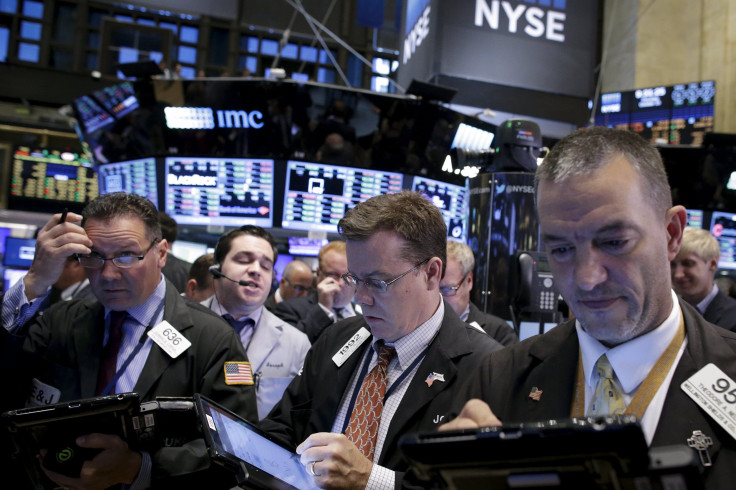Paris Terror Attacks 2015: Global Financial Markets Expect Short-Term Shock, Little Long-Term Fallout

Conventional wisdom holds that Monday is likely to see a rout in stock markets worldwide, as investors recoil in panic from the terrorist attacks in Paris. But what meager data is available on the behavior of traders following such tragedies suggests a morbid possibility: panicked selling may yet present a buying opportunity.
“This terror event is horrific and off-the-charts,” Adam Sarhan, chief executive of Sarhan Capital, said Sunday evening. Still, he added: “It would be perfectly normal to see a rally in U.S. markets Monday. Historically, the data is mixed in how markets react to these events.”
The data is indeed mixed -- and also too limited to be of great value as a predictor, says economist Brock Blomberg, who studies the impact of extreme events on market behavior. “One of the challenges is that you need lots and lots of data to see a pattern, says Blomberg, “and there aren’t many of these events.”
Based on the limited data set, Blomberg and others do observe a distinct outline: Markets tend to dip immediately after a terror attack, but the down periods are temporary.
One pattern economists have been able to divine: U.S. markets are more resilient than most. Economists Andrew Chen and Thomas Siems have found U.S. markets recovered faster than other major world bourses after major acts of war throughout history, including the terror attacks of Sept. 11, 2001. U.S. equities trading on the New York Stock Exchange -- which sits a mere four blocks from Ground Zero -- took 37 business days to stabilize and return to pre-attack trading levels. The S&P 500 took just 19 trading sessions, according to Chen and Siems’ research.
As then-chairman of the Securities and Exchange Commission, Harvey Pitt, noted at the time in congressional testimony: “The markets did not give way to panic selling. They simply did what they do best: they assessed, and responded to, the crisis rationally. Unlike human beings, capital markets are capable of absorbing great shocks quickly.”
In early trading on Monday, stocks opened lower in Asia, with the Hang Seng Index down nearly 2 percent and the Nikkei dropping 1 percent. European markets were expected to trend downward and U.S. futures were down slightly.
Before the lethal attacks in Paris, global markets were already contending with substantially negative elements, having priced in a potential rate hike from the U.S. Federal Reserve, an economic slowdown in China and the threat of Greece fracturing the euro zone -- all in the last six months. In the straight-up, unsentimental calculations of market professionals, terrorism is but another factor to be weighed and a reality to be expected.
Indeed, investors the world over appear to be growing more callous to terror, reacting in what New Zealand economist Muhammad Tahir Suleman calls “a highly consistent pattern.” On the first day of trading following the Sept. 11, 2001, attacks, the Dow Jones Industrial Average dropped 7 percent. The Madrid bombings in 2004 saw Spanish markets dip roughly 2 percent and 2005’s London bombings sent the U.K. markets down a little more than 1 percent.
Suleman divides the reaction in four stages: “Firstly, the initial market impact from terror attacks is likely to be overdone and to unwind over subsequent days. Second, once the initial panic eases, investors take a more rational look at the medium-term economic impact. Thirdly, the micro impact of attacks can be more serious than the macro. Finally, the extent to which attacks have a long-term market impact on industries and countries depends on whether they cause investors to re-evaluate their long-term risk assessments.”
After the Paris attacks, even close observers of the markets like Sarhan aren’t entirely jaded. The unknowns scare investors, and the question that could twist financial markets in knots, says Sarhan: “Is this a one-off, or are we going to see a series of ongoing terror events?”
© Copyright IBTimes 2025. All rights reserved.






















